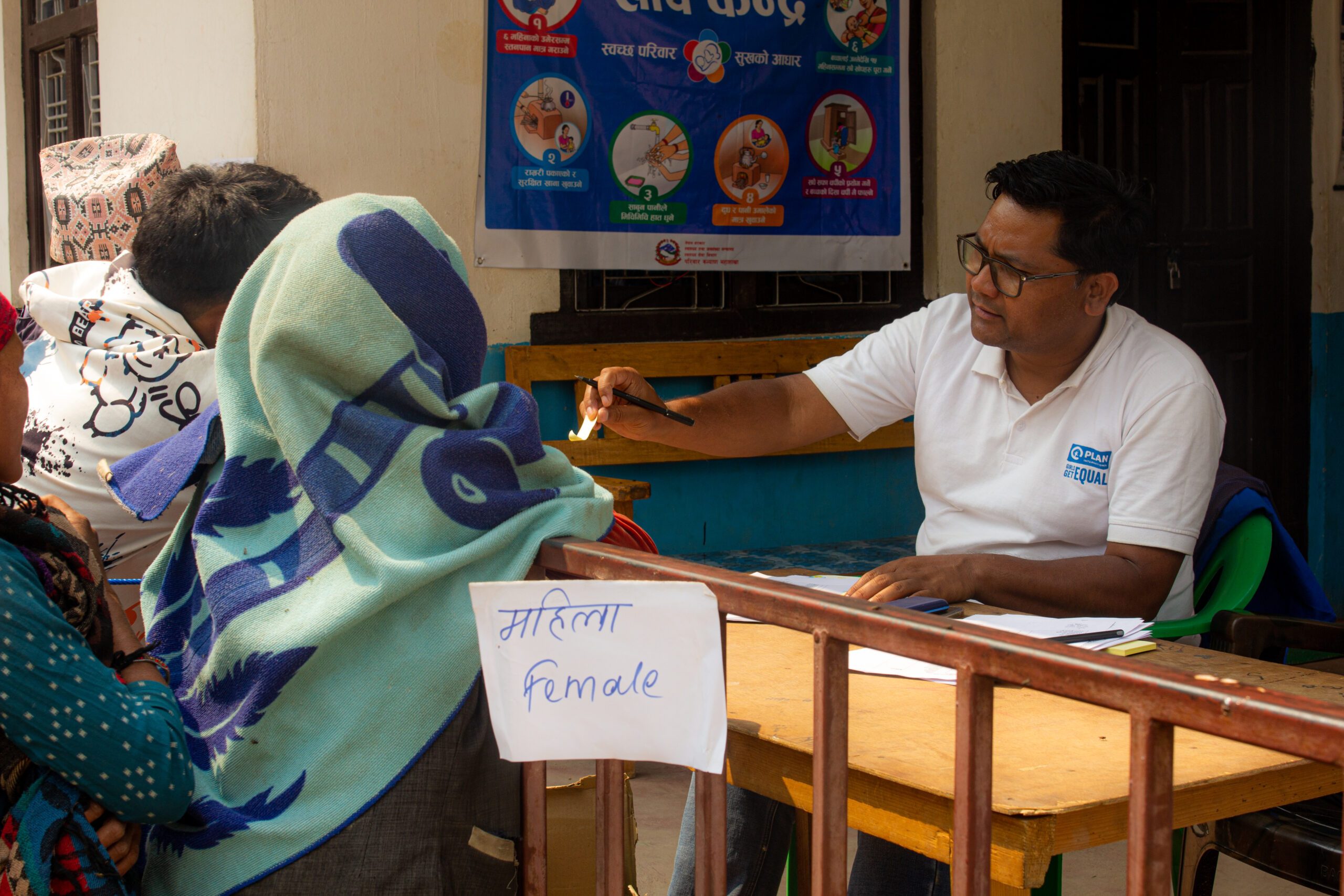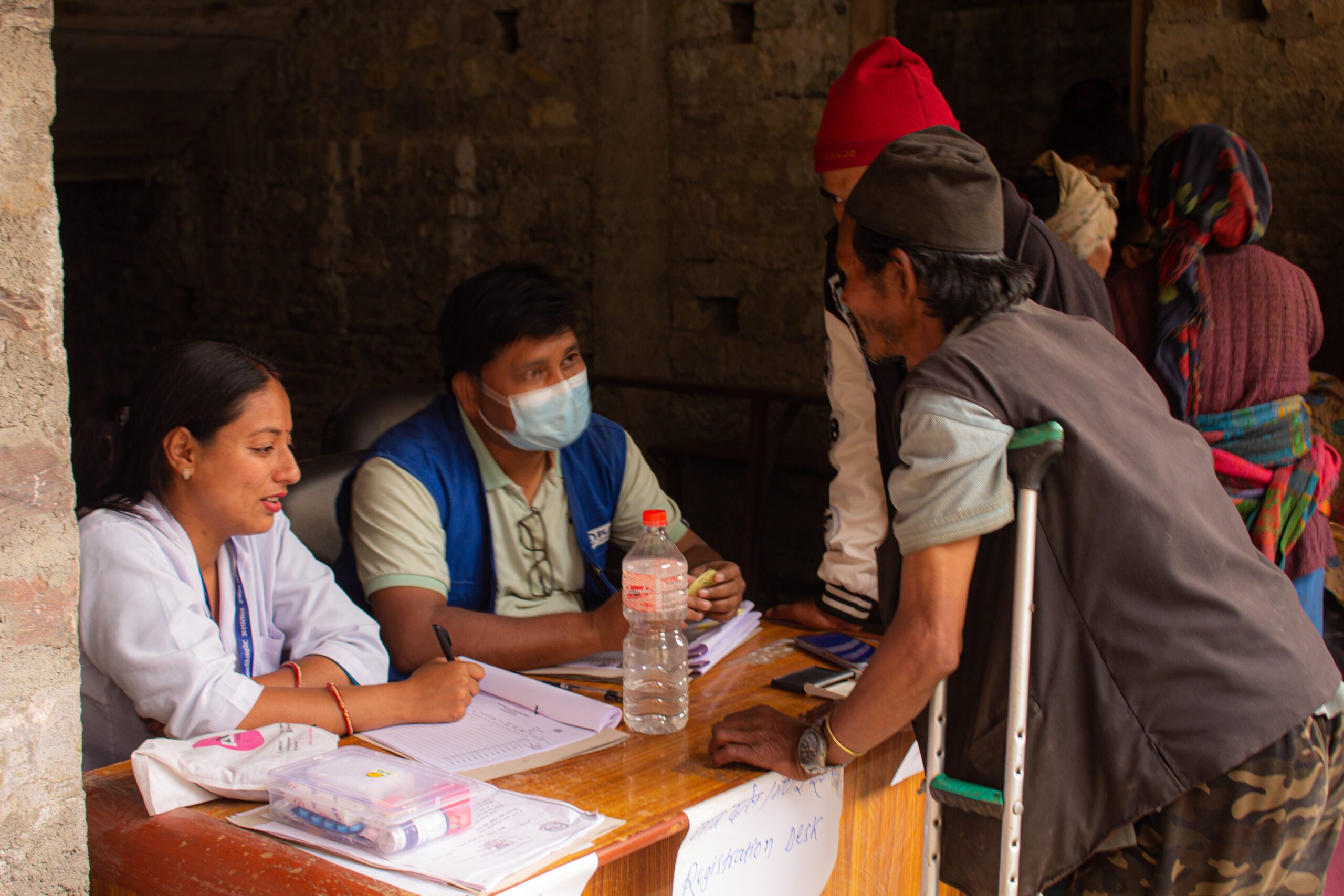Jhalak: Championing inclusive humanitarian response
This World Humanitarian Day, we honour Jhalak Bishwakarma for his exceptional dedication to advocating for inclusive humanitarian responses.

Jhalak Bishwakarma, a dedicated Project Coordinator at Plan International Nepal, is based in Surkhet. With a strong background in emergency response and humanitarian work, Jhalak is a passionate advocate for ensuring that disaster responses are inclusive and intersectional. His commitment to serving vulnerable communities, particularly during times of crisis, has been shaped by years of on-the-ground experience and a deep sense of empathy.
Jhalak says, “Inclusive humanitarian response is not just about reaching everyone; it’s about ensuring that every voice is heard, every need is met, and no one is left behind.”
Inspiration to become a humanitarian worker
“I was inspired to become a humanitarian worker by witnessing the resilience of disaster-affected communities. Their courage fuels my commitment to stand with them and make a meaningful difference in their lives.”
Throughout his career, he has been immersed in humanitarian settings, playing an active role in emergency response and recovery efforts during some of Nepal’s most challenging times. His journey began with the Mid-west flood response in 2014, continued through the earthquake response in 2015, and most recently, the Karnali earthquake response in 2023. Witnessing firsthand the crises and hardships endured by disaster-affected communities profoundly impacted him. These experiences inspired him to dedicate himself to disaster response activities, driven by human empathy and a desire to make a positive difference in people’s lives and safeguard their rights.
Memorable experience as a frontline responder
One of the most memorable experiences of his career was working with the Plan International Nepal team in Makawanpur, Dolakha, Sindhupalchok, and Sindhuli during the earthquake response – 2015. Jhalak recalls, “The camaraderie within our team and the recognition from the community and local authorities made it an unforgettable experience.”
Jhalak played a vital role during the recent Karnali Earthquake Response, where his efforts were pivotal in ensuring that aid reached the most vulnerable.
Reflecting on the experience, Ward Secretary Biswa Bandhu Rokaya, Jajarkot, stated, “The coordination was exceptionally smooth. We targeted households led by single women, pregnant and lactating mothers, adolescent girls, and women with disabilities, ensuring each received what they needed most. Even 6 months after the earthquake, community members remain grateful for the relief materials. We successfully reached previously unreached rural communities in Jajarkot, and we were particularly impressed by the effective management and distribution processes.”

Ensuring inclusivity
Jhalak’s efforts have been instrumental in ensuring that humanitarian aid reaches the most vulnerable communities, particularly adolescent girls and persons with disabilities. Working closely with local governments and authorities, Jhalak has led efforts to accurately identify those in greatest need. Through joint field visits and consultations, he has helped create an inclusive list that prioritises these at-risk groups, ensuring their specific needs are addressed.
In his role, Jhalak has also championed the equitable distribution of aid, coordinating with local authorities to ensure accessibility and inclusivity. His dedication to making humanitarian responses more inclusive has made a significant impact, ensuring that the voices and needs of the most vulnerable are not only heard but met with dignity and respect.
Jhalak says, “In a humanitarian crisis, leaving even one person behind is a failure of our collective humanity. Every life matters, and our response must reach everyone, especially the most vulnerable.”
Overcoming challenges
During the Mid-west flood response in Surkhet in 2014, he encountered a significant challenge. Local stakeholders displayed bias in the selection process for affected populations, attempting to circumvent government and project criteria and standards. This led to delays in responding to the affected areas and populations, causing difficulties in finalising the list of those genuinely impacted. However, by collaborating with the District Disaster Management Committee, Local Disaster Management Committee, and relevant stakeholders, the team conducted joint monitoring of flood-affected areas. Through coordinated efforts, he developed and implemented a joint response plan that ensured aid reached those who needed it most.
“To me, being a humanitarian means actively working with affected populations to improve their well-being, dignity, and rights in challenging situations. It is about upholding the principles of humanity, neutrality, impartiality, and independence while striving to make a meaningful impact on the lives of those in need.”
His motivation
“Every challenge is an opportunity to connect with diverse communities, understand their struggles, and learn from their resilience. This fuels my drive to keep pushing forward, no matter how tough the road ahead,” Jhalak adds.
Jhalak’s motivation stems from a deep-rooted desire to support people facing difficulties. He views challenging situations as opportunities to travel to different locations, interact with diverse communities and stakeholders, and learn about their unique issues, cultures, societies, and opportunities. These experiences continually inspire and motivate him to persevere, even in the most difficult circumstances.
Categories: Emergencies


